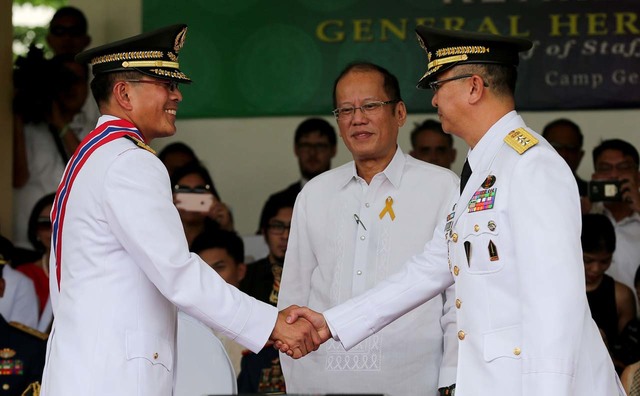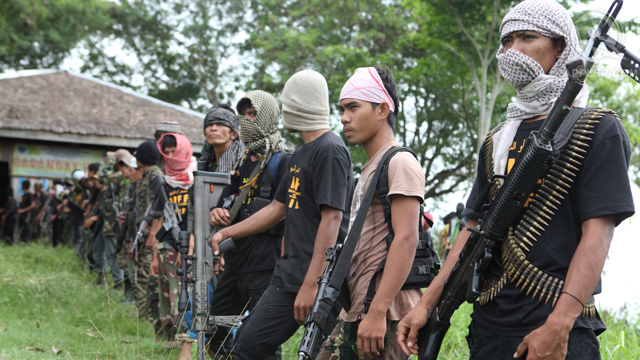BUTUAN CITY – Another tribal leader was gunned down Thursday by seven gunmen believed to be members of New People’s Army (NPA) at Purok 4, Sitio Sta. Cruz, Barangay Manila de Bugabos in Butuan City, police reported yesterday.
The victim, Jose P. Paragua, Sr., 57, known as “Datu Puti” in the Manobo tribe, is a member of the Tribal Communities in Mindanao (TRICOM) based in Agusan del Norte and Butuan City.
He sustained nine bullet wounds in the head and body and was declared dead on arrival at Butuan Medical Center here.
Senior Inspector Roland Orcullo of Butuan City Police Office Station 5 (BCPO-Station 5) said the victim was supervising the loading of his planted gmelina tree to a forward truck when seven unidentified gunmen on board three motorcycles arrived at 2:45 p.m. Thursday and shot the victim at close range.
After the shooting, the perpetrators fled towards Barangay Tungao at the southern part of this city.
Three of the companions of “Datu Puti” were not harmed during the incident. They claimed that the gunmen introduced themselves as NPA members before leaving the crime scene.
As of yesterday, BCPO-Station 5 has yet to determine the identities of the gunmen and the motive behind the killing.
At least seven tribal chieftains have already been killed in various areas in the region since last year, including Manobo tribal chieftain Loreto town Mayor Dario Otaza in Agusan del Sur, PRO 13 record shows.
http://www.tempo.com.ph/2016/04/23/news/regional/another-tribal-leader-slain/
The victim, Jose P. Paragua, Sr., 57, known as “Datu Puti” in the Manobo tribe, is a member of the Tribal Communities in Mindanao (TRICOM) based in Agusan del Norte and Butuan City.
He sustained nine bullet wounds in the head and body and was declared dead on arrival at Butuan Medical Center here.
Senior Inspector Roland Orcullo of Butuan City Police Office Station 5 (BCPO-Station 5) said the victim was supervising the loading of his planted gmelina tree to a forward truck when seven unidentified gunmen on board three motorcycles arrived at 2:45 p.m. Thursday and shot the victim at close range.
After the shooting, the perpetrators fled towards Barangay Tungao at the southern part of this city.
Three of the companions of “Datu Puti” were not harmed during the incident. They claimed that the gunmen introduced themselves as NPA members before leaving the crime scene.
As of yesterday, BCPO-Station 5 has yet to determine the identities of the gunmen and the motive behind the killing.
At least seven tribal chieftains have already been killed in various areas in the region since last year, including Manobo tribal chieftain Loreto town Mayor Dario Otaza in Agusan del Sur, PRO 13 record shows.
http://www.tempo.com.ph/2016/04/23/news/regional/another-tribal-leader-slain/






